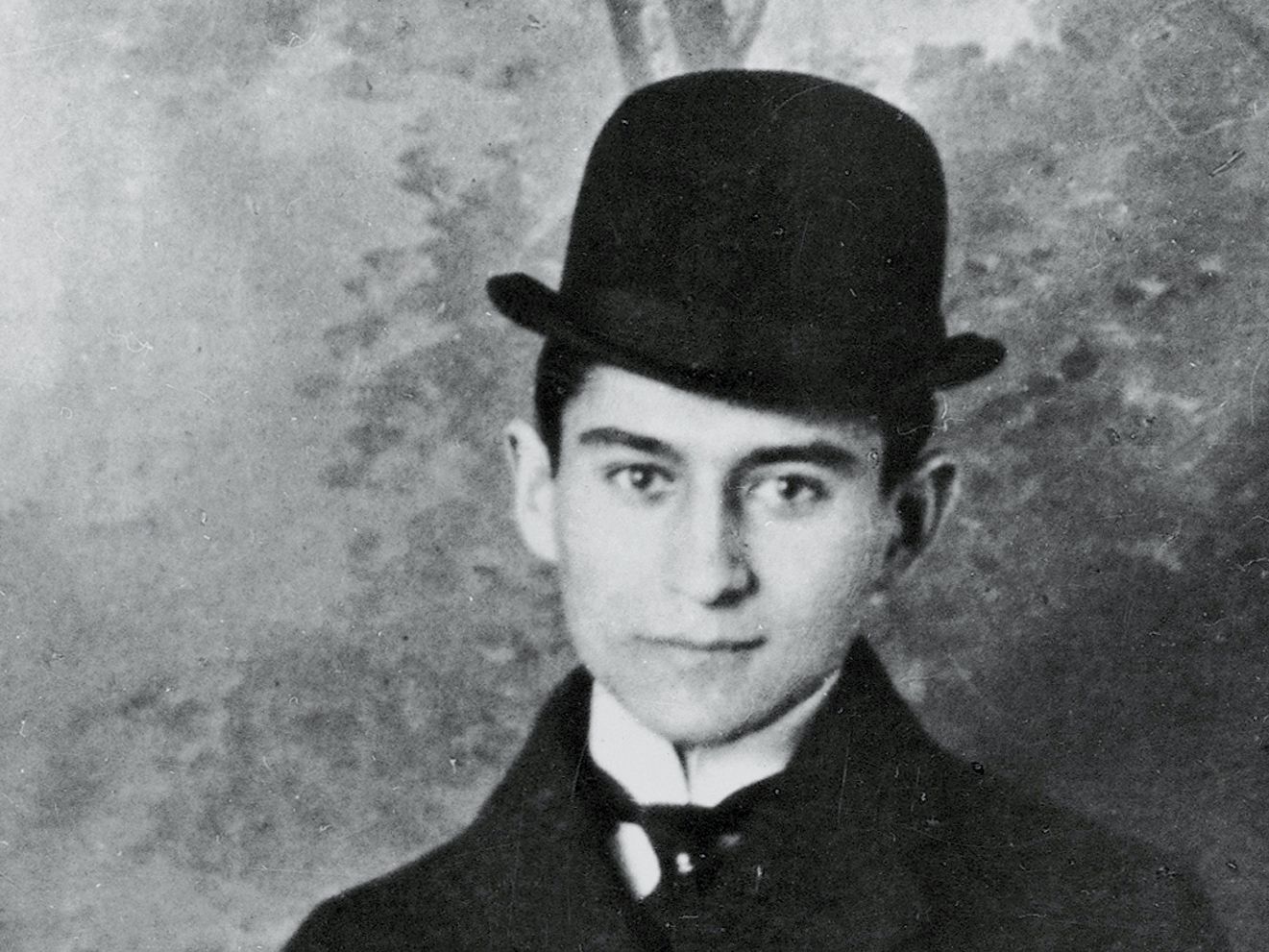
Full name – Franz Kafka
Death – 1924, age 40
Nationality – Czech
Author Franz Kafka grew up in an upper middle-class Jewish family. After studying law at the University of Prague, he worked in insurance and wrote in the evenings. In 1923, he moved to Berlin to focus on writing, but died of tuberculosis shortly after. His friend Max Brod published most of his work posthumously, such as Amerika and The Castle.
Early life and family –
Writer Franz Kafka was the eldest son of an upper middle-class Jewish family who was born on July 3, 1883, in Prague, the capital of Bohemia, a kingdom that was a part of the Austro-Hungarian Empire. His childhood was tragic with Franz’s two younger brothers, Georg and Heinrich, died in infancy by the time Kafka was six, leaving the boy the only son in a family with three sisters. Kafka had a difficult relationship with both of his parents. His mother, Julie, was a devoted homemaker who lacked the intellectual depth to understand her son’s dreams to become a writer. Kafka’s father, Hermann, had a forceful personality that often overwhelmed the Kafka home. He was a success in business, making his living retailing men’s and women’s clothes. Kafka’s father had a profound impact on both Kafka’s life and writing. He was a tyrant of sorts, with a wicked temper and little appreciation for his son’s creative side. Much of Kafka’s personal struggles, in romance and other relationships, came, he believed, in part from his complicated relationship with his father. In his literature, Kafka’s characters were often coming up against an overbearing power of some kind, one that could easily break the will of men and destroy their sense of self-worth.
Kafka was German in both language and culture. He was a timid, guilt-ridden, and obedient child who did well in elementary school and in the Altstädter Staatsgymnasium, an exacting high school for the academic elite. He was respected and liked by his teachers. Inwardly, however, he rebelled against the authoritarian institution and the dehumanised humanistic curriculum, with its emphasis on rote learning and classical languages. Kafka’s opposition to established society became apparent when, as an adolescent, he declared himself a socialist as well as an atheist. After high school Kafka enrolled at the Charles Ferdinand University of Prague, where intended to study chemistry but after just two weeks switched to law. The change pleased his father, and also gave Kafka the time to take classes in art and literature. In 1906, Kafka completed his law degree and embarked on a year of unpaid work as a law clerk.
Work and later life –
After completing his apprenticeship, Kafka found work with an Italian insurance agency in late 1907. It was a terrible fit from the start, with Kafka forced to work a tiring schedule that left little time for his writing. He lasted at the agency a little less than a year. After turning in his resignation, he quickly found a new job with the Workers’ Accident Insurance Institute for the Kingdom of Bohemia. As much as any work could, the job and his employers suited Kafka, who worked hard and became his boss’s right-hand man. Kafka remained with the company until 1917, when a bout with tuberculosis forced him to take a sick leave and to eventually retire in 1922.
At work Kafka was a popular employee, easy to socialise with and seen as somebody with a good sense of humour. But his personal life still raged with complications. His inhibitions and insecurities plagued his relationships. Twice he was engaged to marry his girlfriend, Felice Bauer, before the two finally went their separate ways in 1917. Later, Kafka later fell in love with Dora Dymant , who shared his Jewish roots and a preference for socialism. Amidst Kafka’s increasingly dire health, the two fell in love and lived together in Berlin. Kafka and Dora eventually returned to Prague. In an attempt to overcome his tuberculosis, Kafka travelled to Vienna for treatment at a sanatorium. He died in Kierling, Austria, on June 3, 1924. He was buried beside his parents in Prague’s New Jewish Cemetery in Olsanske.
While Kafka strove to earn a living, he also poured himself into his writing work. An old friend named Max Brod would prove crucial in supporting Kafka’s literary work both during his life and long after it. Kafka’s celebrity as a writer only came after his death. During his lifetime, he published just a sliver of his overall work.
His most popular and best-selling short story, “The Metamorphosis,” was completed in 1912 and published in 1915. The story was written from Kafka’s third-floor room, which offered a direct view of the Vltava River and its toll bridge. Even with his worsening health, Kafka continued to write. In 1916 he completed “The Judgment,” which spoke directly about the relationship he shared with his father. Later works included “In the Penal Colony” and “A Country Doctor,” both finished in 1919. In 1924, an ill but still working Kafka finished A Hunger Artist, which features four stories that demonstrate the concise and lucid style that marked his writing at the end of his life. But Kafka, still living with the demons that plagued with him self-doubt, was reluctant to unleash his work on the world. He requested that Brod, who doubled as his literary executor, destroy any unpublished manuscripts.
Incredibly, at the time of his death Kafka’s name was known only to small group of readers. It was only after he died and Max Brod went against the demands of his friend that Kafka and his work gained fame. His books garnered favour during World War II, especially, and greatly influenced German literature.
As the 1960s took shape and Eastern Europe was under the fist of bureaucratic Communist governments, Kafka’s writing resonated particularly strongly with readers. So alive and vibrant were the tales that Kafka spun about man and faceless organisations that a new term was introduced into the English lexicon: “Kafkaesque.”
How useful was this post?
Click on a star to rate it!
Average rating 0 / 5. Vote count: 0
No votes so far! Be the first to rate this post.

UBI stands for United By Ink®️. UBI is a Global Platform- the real-time social media interactive forum created for Readers, Writers and Facilitators alike.This platform aims to help creative souls realize their writing goals.
Click on our representatives below to chat on WhatsApp or send us an email to ubi.unitedbyink@gmail.com
